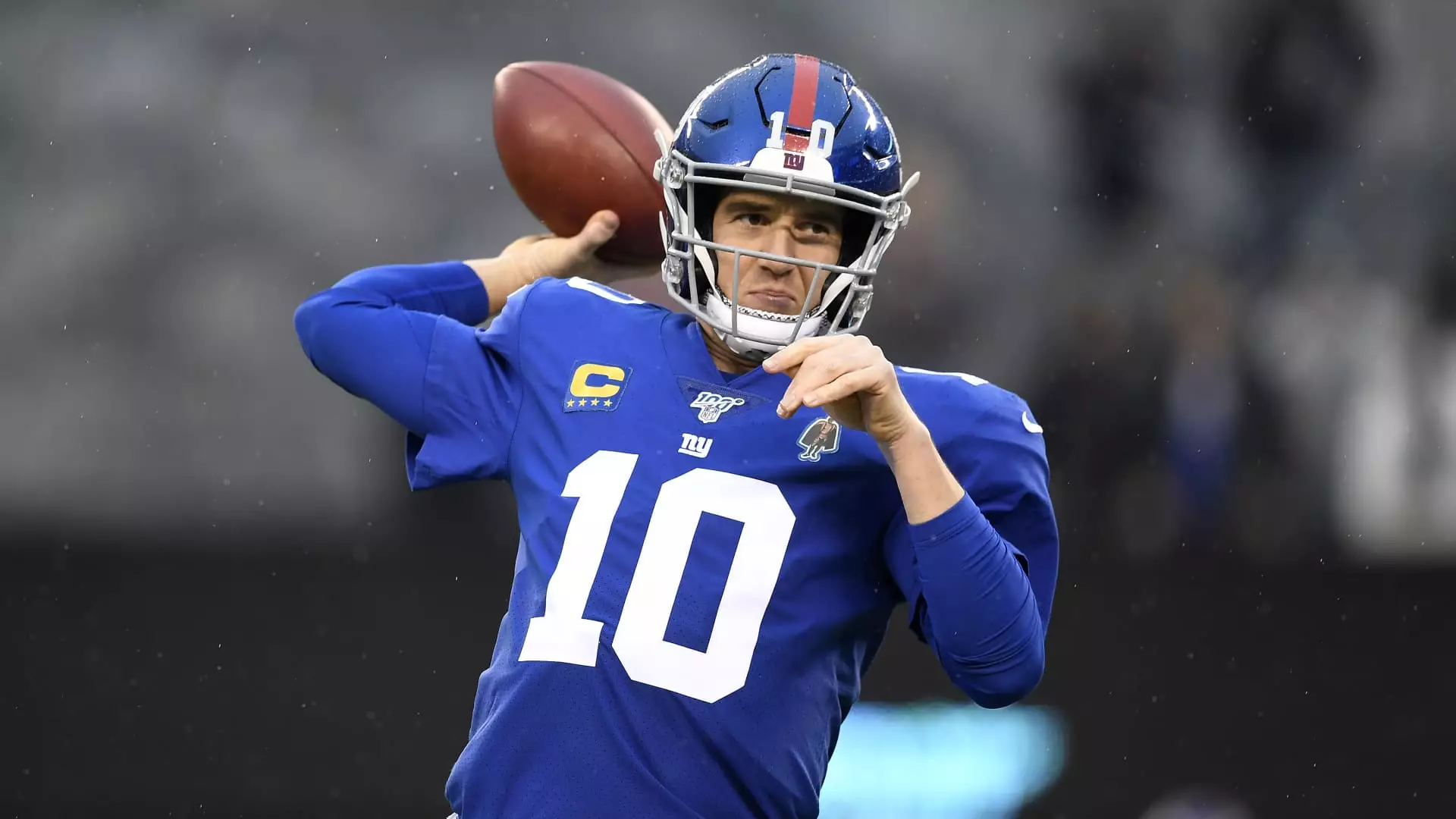The recent refusal by Eli Manning to buy a minority stake in his former team, the New York Giants, reveals a sobering truth about the current valuation of NFL franchises. Manning, a celebrated quarterback and a beloved figure, candidly admits he was “priced out” of the market, citing the astronomical valuation of the Giants—approaching $8 billion—and the sky-high costs needed for even a minimal ownership share. His statement underscores a broader issue: the illusion that wealth, even accumulated from a stellar athletic career combined with endorsements and business ventures, is enough to navigate the ever-expanding universe of sports franchise valuations.
The NFL’s valuation surge is more than just inflation; it’s a reflection of a deeply intertwined commercial strategy that expands beyond mere team operations into media rights, merchandise, and global branding. When a 1% stake in a $10 billion franchise becomes “a very big number,” it surfaces as a barrier for the average affluent but not billionaire investor. It exposes the limits of wealth accumulation and highlights how the economic reality of team ownership has become almost exclusive to ultra-wealthy hedge funds, global billionaires, or families with generational wealth—leaving behind those who might have otherwise had a proximity to the game and community roots, like Manning.
This trend also calls into question the very notion of ownership as a symbol of community identity or athletic legacy. If even a former star athlete can’t realistically buy into his past team, it suggests that the NFL’s current valuation model favors elite financial players whose interests are more aligned with investment returns than with spirited fandom or local community engagement. Forcing even those with deep personal ties to the sport into the sidelines speaks volumes about the widening economic chasm in sports ownership.
Market Valorization vs. Traditional Values: A Shift in Ownership Paradigms
The NFL—once rooted in the working-class and small-town values—has morphed into a multi-billion-dollar corporate enterprise where owning a stake is less about passion and more about strategic financial leverage. Manning’s stance signals a cautious but clear reality: the era where athletes or even influential personalities could comfortably invest in teams at affordable levels is rapidly diminishing. This doesn’t just mirror the NFL’s inflationary valuation but also highlights an unfortunate shift in the ownership model—one increasingly dominated by corporate interests, global capital, and high-net-worth individuals.
From a political perspective aligned with center-right liberalism, this scenario underscores the importance of balancing free enterprise with the preservation of community-based ownership models. While the NFL operates in a free-market framework that encourages price discovery and investment, it is essential to question whether the rapid escalation of franchise valuations genuinely benefits the sport’s long-term health or merely consolidates wealth among an ultra-rich elite. The potential of private equity firms to swoop into this space—at up to 10% stakes—further commodifies franchise ownership, transforming team loyalty into investment commodities rather than community assets.
Manning’s decision not to pursue an ownership stake exemplifies a pragmatic recognition that the costs outweigh the intangible benefits. It also subtly criticizes the belief that owning a piece of a sports franchise earns you a return on investment comparable to other asset classes. His dismissal reveals a fundamental truth: not everyone with residual love for the game or a desire for influence should be pressured into investing beyond their means, especially when the current market favors debt-fueled expansion and speculative valuation increases.
Wealth, Influence, and the Future of Sports Ownership
Eli Manning’s stance should serve as a wake-up call to fans and policymakers alike—sports franchises are becoming more like financial assets than community cornerstones. The fact that Manning, who made over $250 million during his playing career and remains influential in media and business, finds the purchase price prohibitive highlights critical issues about accessibility and the true meaning of ownership. The recent deals involving the Eagles, 49ers, and Lakers all underscore a trend of inflationary valuations, often driven by external investors rather than loyal fans or local entrepreneurs.
Center-right liberalism advocates for a healthy balance—supporting free enterprise and private initiative while recognizing the importance of maintaining community bonds and limiting speculative distortions. The inflated valuations risk alienating the very individuals who have historically anchored teams to their localities. Encouraging broad ownership, including modest stakes by dedicated fans or local entrepreneurs, could foster a more resilient and community-oriented sports culture, countering the tendency toward monopoly by financial giants.
Manning’s withdrawal from the bidding process demonstrates a nuanced understanding of this landscape: responsible investing must consider both market realities and cultural integrity. His decision not to pursue a stake, despite his desire and capacity, embodies a pragmatic approach—discerning when the economic costs eclipse potential benefits and avoiding the trap of overextending oneself in a market now dominated by high-stakes financial motives rather than shared passion. It’s a reminder that, in the pursuit of success, sometimes restraint and realism serve a more enduring legacy than reckless pursuit of wealth.

